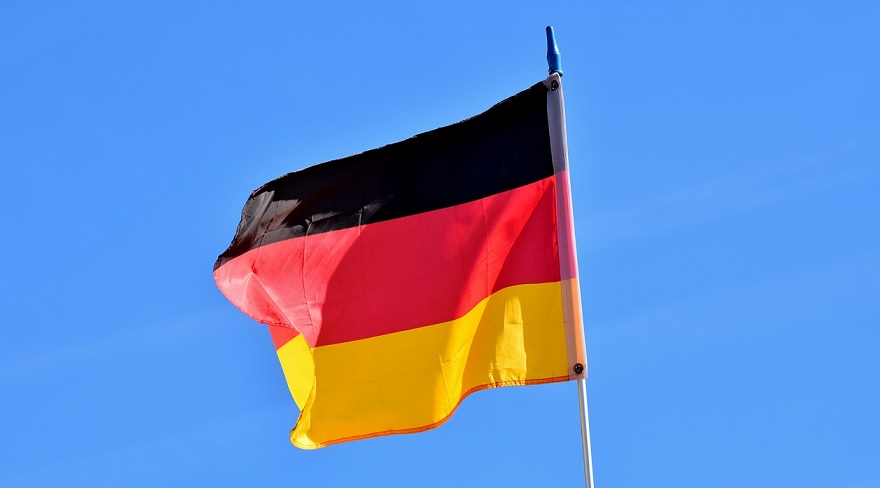
Think German culture is confined to the borders of Germany? Think again. From Oktoberfest in Brazil to Bavarian villages in Africa, the German diaspora has left an enduring cultural imprint worldwide. Over the centuries, waves of German emigrants have carried their language, traditions, and culinary delights to all corners of the globe.
Whether it’s Bratwurst in Argentina, Christmas markets in Pennsylvania, or entire German-speaking communities in Namibia, the legacy of German migration is alive and well. So, where can you still find authentic traces of German culture outside Germany? Let’s take a journey across continents and uncover the fascinating global influence of German heritage.
The History of the German Diaspora
German migration dates back hundreds of years, with waves of emigration happening for economic, religious, and political reasons. Some of the most notable migration periods include:
- The 17th-18th centuries – Religious persecution led many German Protestants to settle in North America, especially in Pennsylvania.
- The 19th century – Millions of Germans emigrated to the United States, South America, and Eastern Europe, seeking better economic opportunities.
- The early 20th century – Political instability and war displaced thousands of Germans, leading to new settlements in Africa and Asia.
- Post-World War II – The mass displacement of Germans from Eastern Europe led to resettlements in Canada, Australia, and South America.
Today, the German diaspora is one of the largest ethnic groups in the world, with millions of people tracing their roots back to Germany. But where can you still see and experience German culture outside of Germany?
Where to Find German Culture Around the World
1. The United States: The Largest German Diaspora
With over 44 million Americans claiming German ancestry, the United States has one of the largest German diasporas in the world. German immigrants played a key role in shaping American culture, influencing everything from Christmas traditions to beer brewing.
Where to Experience German Culture in the U.S.:
- Pennsylvania Dutch Country – Home to Amish and Mennonite communities, preserving the German dialect (Pennsylvania Dutch) and traditions.
- Milwaukee, Wisconsin – Nicknamed the most German city in the U.S., Milwaukee hosts one of the largest Oktoberfests outside of Germany.
- Fredericksburg, Texas – A town founded by German settlers, featuring authentic German bakeries, beer halls, and architecture.
- New Braunfels, Texas – Famous for its annual Wurstfest, a celebration of German sausage and heritage.
2. Brazil: The Heart of German South America
Brazil is home to one of the largest German-speaking communities outside Europe, with over 12 million Brazilians of German descent. Many German immigrants arrived in the 19th century, settling in southern Brazil, where they preserved their language, cuisine, and architecture.
Where to Find German Culture in Brazil:
- Blumenau – A German-founded city known for hosting the second-largest Oktoberfest in the world.
- Pomerode – Dubbed “the most German town in Brazil,” where Pomeranian dialects are still spoken today.
- Santa Catarina and Rio Grande do Sul – These states have strong German traditions, with authentic Christmas markets, folk music, and architecture.
3. Argentina: A Taste of Bavaria in South America
Argentina has over three million people of German ancestry, and many regions still speak German and celebrate German traditions. Many German immigrants arrived during the late 19th century, bringing beer culture, German schools, and culinary traditions.
Where to Find German Culture in Argentina:
- Villa General Belgrano – A small town with Bavarian-style buildings and an annual Oktoberfest celebration.
- Bariloche – A scenic region with strong German and Swiss influence, known for chocolate shops and Alpine architecture.
- Buenos Aires – Home to German clubs, bakeries, and schools, preserving German language and traditions.
4. Namibia: Germany’s Forgotten Colony
One of the most surprising places where German culture thrives is Namibia, a former German colony. Although Germany lost control of Namibia after World War I, its influence is still visible today.
Where to Find German Culture in Namibia:
- Swakopmund – A coastal city that looks like a Bavarian town, with German street names, bakeries, and beer halls.
- Windhoek – Namibia’s capital still has German architecture, restaurants, and cultural festivals.
- German Language & Schools – Many Namibians of German descent still speak German, and the language is taught in local schools.
5. Australia: German Influence Down Under
German immigrants played a key role in Australia’s winemaking industry, particularly in South Australia. Some German communities still thrive today, preserving German food, language, and festivals.
Where to Experience German Culture in Australia:
- Hahndorf, South Australia – Australia’s oldest German settlement, featuring beer halls, German bakeries, and cultural festivals.
- The Barossa Valley – A wine-producing region founded by German settlers, known for Riesling and Shiraz wines.
6. Russia & Eastern Europe: The Legacy of the Volga Germans
During the 18th and 19th centuries, German settlers were invited by Catherine the Great to farm in Russia and Eastern Europe. Known as Volga Germans, they maintained their language, customs, and Lutheran faith until World War II, when many were deported to Siberia or emigrated elsewhere.
Despite hardship, traces of German culture remain in:
- Kazakhstan & Siberia – Some Volga German communities still exist, preserving their unique dialects and traditions.
- Romania & Poland – Small villages still retain German architecture and cultural festivals.
The German diaspora has left a lasting impact on cultures around the world, from Bavarian villages in Brazil to German-speaking communities in Namibia. Whether through Oktoberfest celebrations, traditional bakeries, or German-language schools, German heritage remains vibrant and alive outside of Germany.
For travelers and culture enthusiasts, exploring German communities worldwide is a fascinating way to experience history, tradition, and global connections. So next time you crave authentic German beer, bratwurst, or a piece of Germany outside its borders, you’ll know exactly where to go.
Want to Learn More About German Culture?
Explore related articles on German traditions and history:







